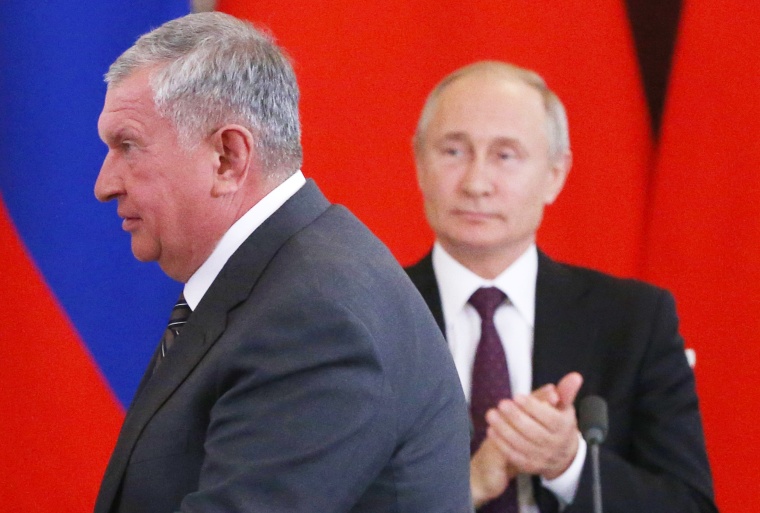A former KGB leader, a diamond mine executive and a deputy prime minister — these are just some of the roles held by Russian oligarchs targeted by the Biden administration in a round of "unprecedented" sanctions against members of President Vladimir Putin's inner circle.
The U.S., working closely with European allies, has been steadily waging sanctions against Moscow with the goal of deterring Putin from escalating actions in Ukraine. The efforts, which do not appear to have thwarted Putin yet, could have lasting effects on Russian business and government leaders with international dealings.
The White House said Friday it would also take the rare step of directly sanctioning Putin, a largely symbolic act given that the Russian leader has hidden his wealth and made it difficult to freeze his assets.
“Elites close to Putin continue to leverage their proximity to the Russian President to pillage the Russian state, enrich themselves, and elevate their family members into some of the highest positions of power in the country at the expense of the Russian people," the U.S. Department of the Treasury said in a statement.
"Sanctioned oligarchs and powerful Russian elites have used family members to move assets and to conceal their immense wealth.”
Secretary of the Treasury Janet L. Yellen said the sanctions were meant to "degrade Russia’s ability to project power and threaten the peace and stability of Europe" by cutting off access to the broader international economy.
Members of the ruling class singled out by the Treasury Department comprise Russia's financial elite who benefit from the regime's "kleptocracy" and are closest to Putin, it said.
The list that was released this week goes beyond "the normal business tycoons" sanctioned in the past, said William Courtney, adjunct senior fellow at the nonpartisan Rand Corp., who served as ambassador to Kazakhstan, Georgia, and on the U.S.-Soviet Bilateral Consultative Commission to Implement the Threshold Test Ban Treaty.
"These people are KGB cronies," Courtney said. "They have more influence on policy, the kind of policy that led to invading Ukraine."
Sanctions could prove effective by constraining the ability of these players to conduct business abroad, keep assets in secure banks and open accounts in reputable Western institutions, he said.
Putin's inner circle includes several people with military and secret service backgrounds who might be less inclined to spread their wealth internationally and instead choose to stay close to Putin in Russia.
"Sanctions are kind of like a middle ground between diplomacy and war," Courtney said, adding that the Kremlin has "18th or 19th century views of using force to promote imperial objectives."
"But they live, and their economies live, in an age of prosperity and people's expectations of honesty and transparency," he said. "It becomes a burden to Russian international economic activities."
Here are the Russians sanctioned this week:
Sergei Sergeevich Ivanov, son of Sergei Borisovich Ivanov
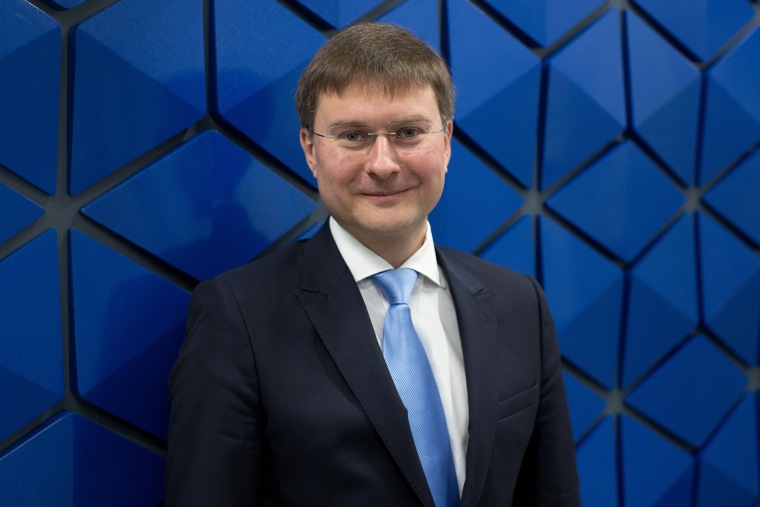
Sergei Borisovich Ivanov is one of Putin's closest allies who previously served as the chief of staff of the presidential executive office and deputy prime minister and defense minister of Russia before becoming special presidential representative for environmental protection, ecology and transport. He served alongside Putin in the KGB and later became a permanent member of the Security Council of the Russian Federation.
His son, Sergei Sergeevich Ivanov, is the CEO of the Russian state-owned diamond mining company Alrosa and a board member of Gazprombank, Russia’s third-largest financial institution.
Andrey Patrushev, son of Nikolai Platonovich Patrushev
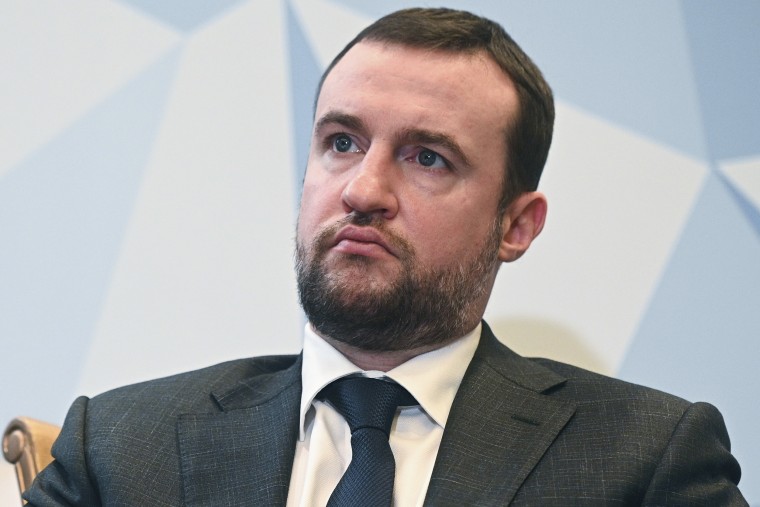
Nikolai Platonovich Patrushev also served in the KGB with Putin, later became head of the Federal Security Service, the main successor agency to the Soviet Union’s KGB. Patrushev is now secretary of the Russian Federation Security Council and was previously sanctioned in 2018. He was also implicated in the fatal radiation poisoning of Alexander Litvinenko, a former Russian intelligence official who defected to the West.
His son, Andrey Patrushev, served in leadership roles at Gazprom Neft, the third-largest oil producer in Russia.
Ivan Igorevich Sechin, son of Igor Ivanovich Sechin
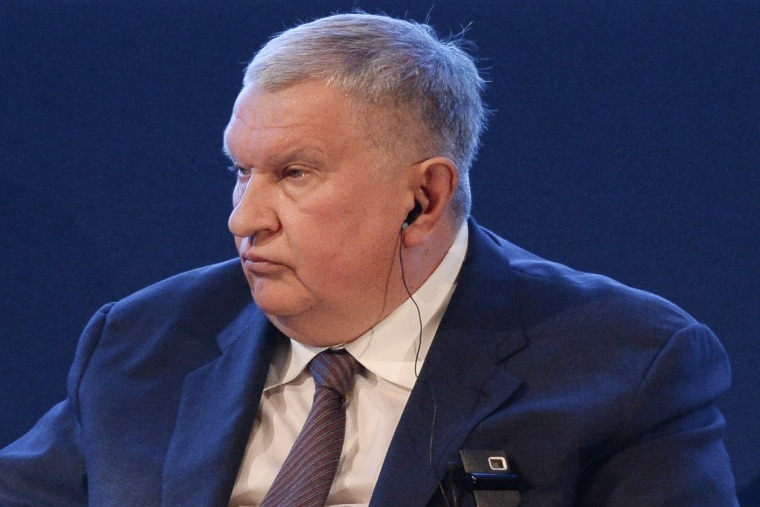
Igor Ivanovich Sechin is CEO, chairman of the management board and deputy chairman of the board of directors of Rosneft, one of the world’s largest publicly traded oil companies. He also served as deputy prime minister of the Russian Federation from 2008 until 2012. The former Soviet military interpreter helped secure a $16 billion deal with BP, which gave the Russian company a 5 percent stake in the British oil company, Reuters reported in 2011.
His son is reportedly a deputy head of a department at Rosneft.
Alexander Aleksandrovich Vedyakhin
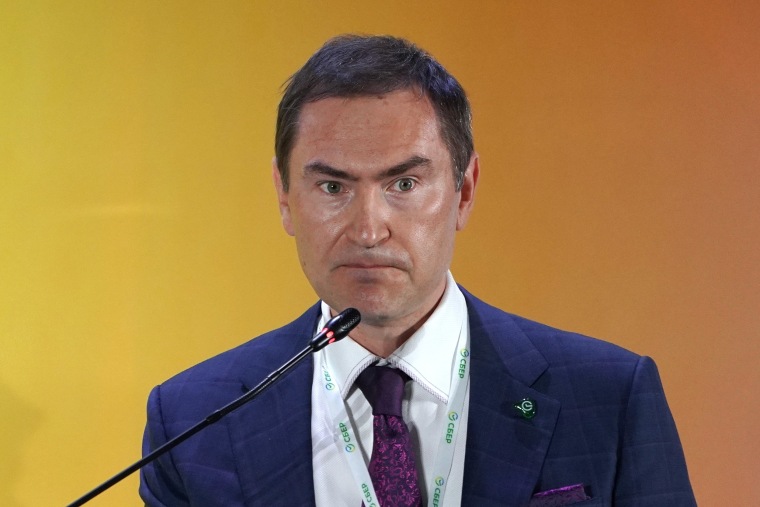
Vedyakhin currently serves as first deputy chairman of the executive board of Sberbank, Russia’s largest financial institution that was also sanctioned this week.
Andrey Sergeyevich Puchkov
A high-ranking executive at VTB Bank, Russia's second-largest financial institution that was sanctioned this week, Puchkov was previously chairman of the FC Dynamo Moscow football club, according to The Wall Street Journal, and several other companies, including multiple real estate endeavors.
VTB was dropped by a U.S. lobbying firm after sanctions were announced. Its website no longer appears to be functional.
Yuriy Alekseyevich Soloviev
Soloviev is also a VTB Bank executive, having previously worked at Lehman Brothers and Deutsch Bank in London. He is currently the chairman of the board of directors of FC Dynamo Moscow football club.
Galina Olegovna Ulyutina, Soloviev’s wife, was previously implicated in a golden passport scheme, according to the U.S. Treasury Department. Such an arrangement allows wealthy foreigners to gain citizenship in exchange for a minimum amount of investment in certain countries.
